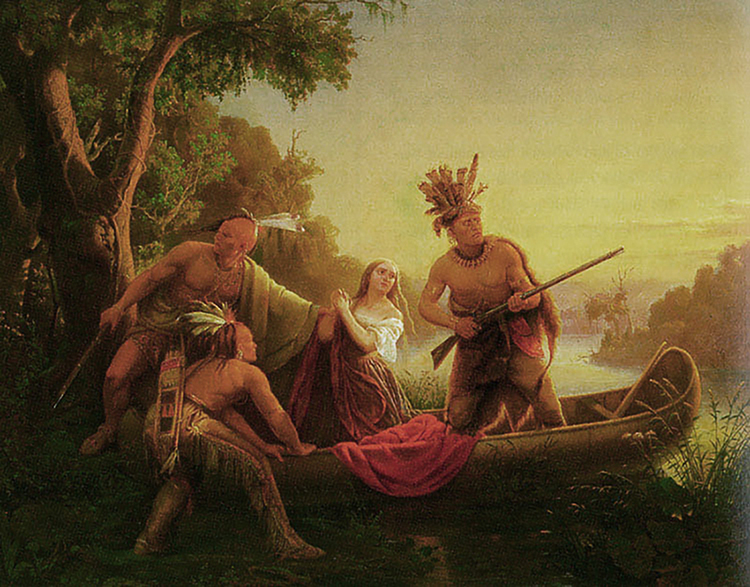|
Guðríður Símonardóttir
Guðríður Símonardóttir (1598 – December 18, 1682) was an Icelandic woman who was one of 242 people abducted from the Westman Islands, Iceland in 1627 in a raid by Barbary pirates."Saurbaer" , Nordic Adventure Travel, Iceland These raids came to be known as . After being held as a slave and concubine for nearly a decade, she was one of a few captives ransomed by the Danish king. She returned to Iceland, marrying the young theology student , who became known for his poetry and hymns. Lif ...
|
Westman Islands
Vestmannaeyjar (, sometimes anglicized as Westman Islands) is a municipality and archipelago off the south coast of Iceland. The largest island, Heimaey, has a population of 4,414, most of whom live in the archipelago's main town, Vestmannaeyjabær. The other islands are uninhabited, although six have single hunting cabins. Vestmannaeyjar came to international attention in 1973 with the eruption of Eldfell volcano, which destroyed many buildings and forced a month-long evacuation of the entire population to mainland Iceland. Approximately one-fifth of the town was destroyed before the lava flow was halted by application of 6.8billion litres of cold sea water. Geography The Vestmannaeyjar archipelago is young in geological terms. The islands lie in the Southern Icelandic Volcanic Zone and have been formed by eruptions over the past 10,000–12,000 years. The volcanic system consists of 70–80 volcanoes both above and below the sea. Vestmannaeyjar comprises the following isl ... [...More Info...] [...Related Items...] OR: [Wikipedia] [Google] [Baidu] |
Sally Magnusson
Sally Anne Stone (''née'' Magnusson; born 11 October 1955), known professionally as Sally Magnusson, is a Scottish broadcast journalist, television presenter and writer, who recently presented the Thursday and Friday night edition of BBC Scotland's ''Reporting Scotland''. She also presents ''Tracing Your Roots'' on BBC Radio 4 and was one of the main presenters of the long-running religious television programme ''Songs of Praise.'' Early life Magnusson was born in 1955 at Bellshill Maternity Hospital in Bellshill, North Lanarkshire. She is the eldest daughter of Magnus Magnusson, an Icelandic-born broadcaster and writer, and Mamie Baird, a newspaper journalist from Rutherglen. Her maternal uncle, Archie Baird, was a Scottish footballer, who played for Aberdeen and St Johnstone. Magnusson's paternal grandfather, Sigursteinn Magnusson, opened an office to handle fish exports to Europe in Edinburgh. She spent her early years in Garrowhill in Glasgow, before moving to Ruthe ... [...More Info...] [...Related Items...] OR: [Wikipedia] [Google] [Baidu] |
Captivity Narratives
Captivity narratives are typically personal accounts of people who have been captured by an enemy, generally a enemy with a foreign culture. The best-known captivity narratives in North America are those concerning Europeans and Americans taken as captives and held by the indigenous peoples of North America. These narratives have had an enduring place in literature, history, ethnography, and the study of Native peoples. They were preceded, among English-speaking peoples, by publication of captivity narratives related to English people taken captive and held by Barbary pirates, or sold for ransom or slavery. Others were taken captive in the Middle East. These accounts established some of the major elements of the form, often putting it within a religious framework, and crediting God or Providence for gaining freedom or salvation. Following the North American experience, additional accounts were written after British people were captured during exploration and settlement in India a ... [...More Info...] [...Related Items...] OR: [Wikipedia] [Google] [Baidu] |
17th-century Icelandic People
The 17th century lasted from January 1, 1601 (represented by the Roman numerals MDCI), to December 31, 1700 (MDCC). It falls into the early modern period of Europe and in that continent (whose impact on the world was increasing) was characterized by the Baroque cultural movement, the latter part of the Spanish Golden Age, the Dutch Golden Age, the French ''Grand Siècle'' dominated by Louis XIV, the Scientific Revolution, the world's first public company and megacorporation known as the Dutch East India Company, and according to some historians, the General Crisis. From the mid-17th century, European politics were increasingly dominated by the Kingdom of France of Louis XIV, where royal power was solidified domestically in the civil war of the Fronde. The semi-feudal territorial French nobility was weakened and subjugated to the power of an absolute monarchy through the reinvention of the Palace of Versailles from a hunting lodge to a gilded prison, in which a greatly expanded r ... [...More Info...] [...Related Items...] OR: [Wikipedia] [Google] [Baidu] |
Writers Of Slave Narratives
A writer is a person who uses written words in different writing styles, genres and techniques to communicate ideas, to inspire feelings and emotions, or to entertain. Writers may develop different forms of writing such as novels, short stories, monographs, travelogues, plays, screenplays, teleplays, songs, and essays as well as reports, educational material, and news articles that may be of interest to the general public. Writers' works are nowadays published across a wide range of media. Skilled writers who are able to use language to express ideas well, often contribute significantly to the cultural content of a society. The term "writer" is also used elsewhere in the arts and music, such as songwriter or a screenwriter, but also a stand-alone "writer" typically refers to the creation of written language. Some writers work from an oral tradition. Writers can produce material across a number of genres, fictional or non-fictional. Other writers use multiple media such a ... [...More Info...] [...Related Items...] OR: [Wikipedia] [Google] [Baidu] |
17th-century Slaves In The Ottoman Empire
The 17th century lasted from January 1, 1601 (represented by the Roman numerals MDCI), to December 31, 1700 (MDCC). It falls into the early modern period of Europe and in that continent (whose impact on the world was increasing) was characterized by the Baroque cultural movement, the latter part of the Spanish Golden Age, the Dutch Golden Age, the French ''Grand Siècle'' dominated by Louis XIV, the Scientific Revolution, the world's first public company and megacorporation known as the Dutch East India Company, and according to some historians, the General Crisis. From the mid-17th century, European politics were increasingly dominated by the Kingdom of France of Louis XIV, where royal power was solidified domestically in the civil war of the Fronde. The semi-feudal territorial French nobility was weakened and subjugated to the power of an absolute monarchy through the reinvention of the Palace of Versailles from a hunting lodge to a gilded prison, in which a greatly expanded r ... [...More Info...] [...Related Items...] OR: [Wikipedia] [Google] [Baidu] |
Turkish Abductions
The Turkish Abductions ( ) were a series of slave raids by pirates from Algier and Salé that took place in Iceland in the summer of 1627. The adjectival label "''Turkish''" () does not refer to ethnic Turks, country of Turkey or Turkic peoples in general; at the time it was a general term for all Muslims of the Mediterranean since the majority were from or subjects of the Ottoman Empire. The pirates came from the cities of Algiers and Salé. They raided Grindavík, the East Fjords, and Vestmannaeyjar. About 50 people were killed and close to 400 captured and sold into slavery. A ransom was eventually paid, 9 to 18 years later, for the return of 50 individuals. Raids The 1627 raid was not the first one. In 1607, both Iceland and the Faroe Islands were subjected to a slave raid by the Barbary pirates, who abducted hundreds of people for the slave markets of North Africa. In 1627, the Barbary pirates came to Iceland in two groups: the first group was from Salé and ... [...More Info...] [...Related Items...] OR: [Wikipedia] [Google] [Baidu] |
17th-century Icelandic Writers
The 17th century lasted from January 1, 1601 (represented by the Roman numerals MDCI), to December 31, 1700 (MDCC). It falls into the early modern period of Europe and in that continent (whose impact on the world was increasing) was characterized by the Baroque cultural movement, the latter part of the Spanish Golden Age, the Dutch Golden Age, the French ''Grand Siècle'' dominated by Louis XIV, the Scientific Revolution, the world's first public company and megacorporation known as the Dutch East India Company, and according to some historians, the General Crisis. From the mid-17th century, European politics were increasingly dominated by the Kingdom of France of Louis XIV, where royal power was solidified domestically in the civil war of the Fronde. The semi-feudal territorial French nobility was weakened and subjugated to the power of an absolute monarchy through the reinvention of the Palace of Versailles from a hunting lodge to a gilded prison, in which a greatly expanded r ... [...More Info...] [...Related Items...] OR: [Wikipedia] [Google] [Baidu] |
1682 Deaths
Events January–March * January 7 – The Republic of Genoa forbids the unauthorized printing of newspapers and all handwritten newssheets; the ban is lifted after three months. * January 12 – Scottish minister James Renwick (Covenanter), James Renwick, one of the Covenanters resisting the Scottish government's suppression of alternate religious views, publishes the Declaration of Lanark. * January 21 – The Ottoman Empire army is mobilized in preparation for a war against Austria that culminates with the 1683 Battle of Vienna. * January 24 – The first public theater in Brussels, the Opéra du Quai au Foin, is opened. * February 5 – In Japan, on the 28th day of the 12th month in the year Tenna 1, a major fire sweeps through Edo (now Tokyo). * February 9 – Thomas Otway's classic play ''Venice Preserv'd or A Plot Discover'd'' is given its first performance, premiering at the Duke's Company, Duke's Theatre. * March 11 – Work beg ... [...More Info...] [...Related Items...] OR: [Wikipedia] [Google] [Baidu] |
1598 Births
Events January–March * January 8 – In Berlin, Joachim Frederich of the House of Hohenzollern becomes the new Elector of Brandenburg upon the death of his father, Johann Georg von Brandenburg. * January 17 – The Tsar of the Russian Empire, Feodor I, dies of a sudden illness at the age of 40, leaving no children and bringing an end to the Rurik dynasty. His widow, Irina Godunova, takes action to secure the throne but her rule lasts for only nine days. * January 26 – After receiving no support from the Russian nobles, the Tsaritsa Irina Godunova abandons her brief rule as autocrat of Russia, and abdicates in favor of her older brother, Boris Godunov. * January 29 – In what is now South Korea, a force of 50,000 troops of the Korean kingdom of Joseon and Chinese Ming dynasty troops begins the siege of Ulsan, a Japanese-controlled castle located in the southwest port of Ulsan on the Sea of Japan. * January 30 – In Italy Cesare d'Este moves the capital of ... [...More Info...] [...Related Items...] OR: [Wikipedia] [Google] [Baidu] |
List Of Slaves
Slavery is a social-economic system under which people are enslaved: deprived of personal freedom and forced to perform labor or services without compensation. These people are referred to as slaves, or as enslaved people. The following is a list of notable historical people who were enslaved at some point during their lives, in alphabetical order by slave name, first name. A * Abraham, an enslaved black man who carried messages between the frontier and Charleston, South Carolina, Charles Town during wars with the Cherokee, for which he was freed. * Malik Ambar, born in 1548 as ''Chapu'', a birth-name in Harar, Adal Sultanate in modern-day Ethiopia. He was from the now extinct Maya (Ethiopia), Maya ethnic group. As a child he was sold in slavery by his parents Mir Qasim Al Baghdadi, one of his slave owners, eventually converted Chapu to Islam and gave him the name Ambar, after recognizing his superior intellectual qualities. Malik was brought to India as a slave. While in ... [...More Info...] [...Related Items...] OR: [Wikipedia] [Google] [Baidu] |








